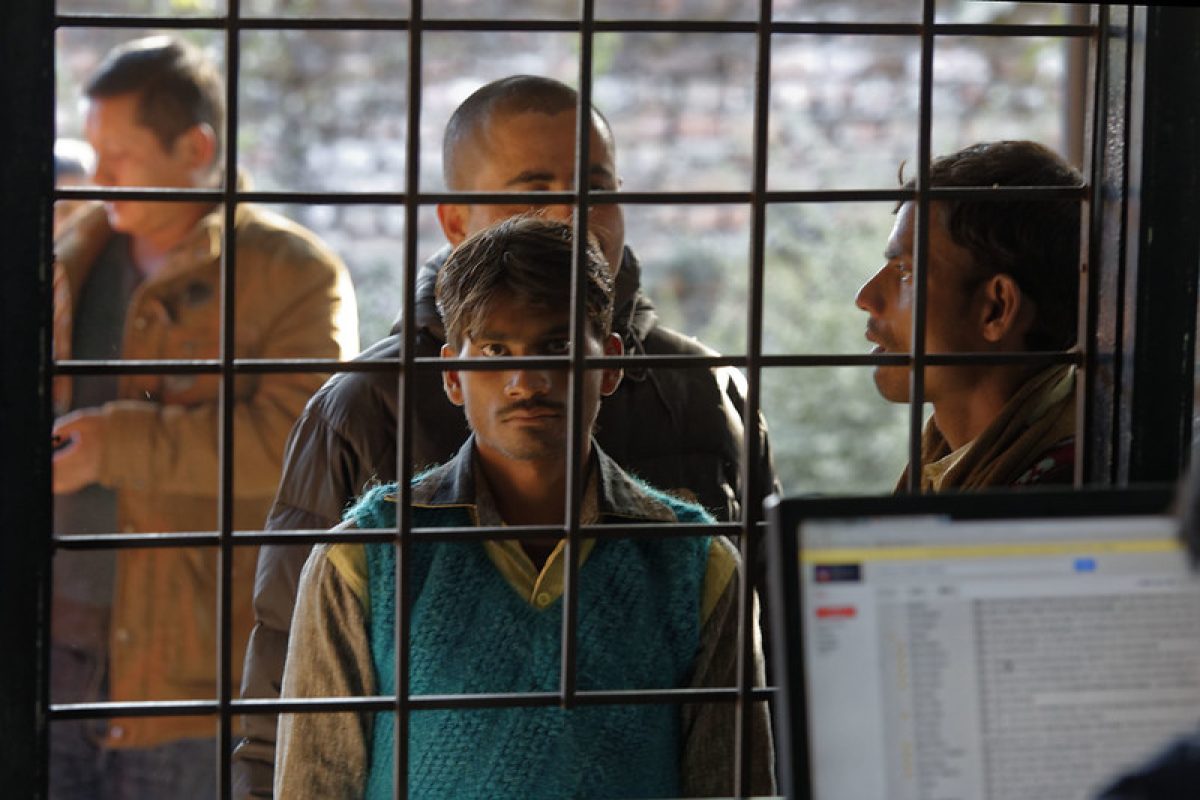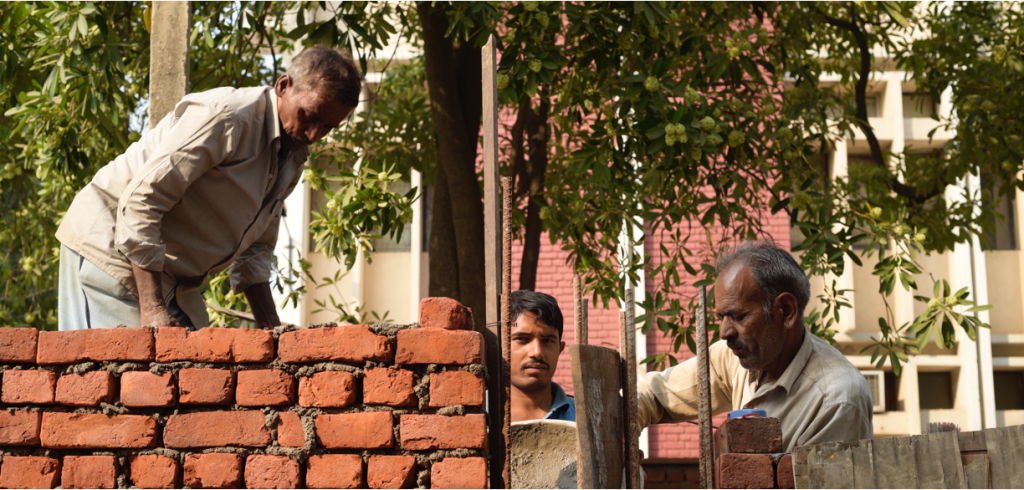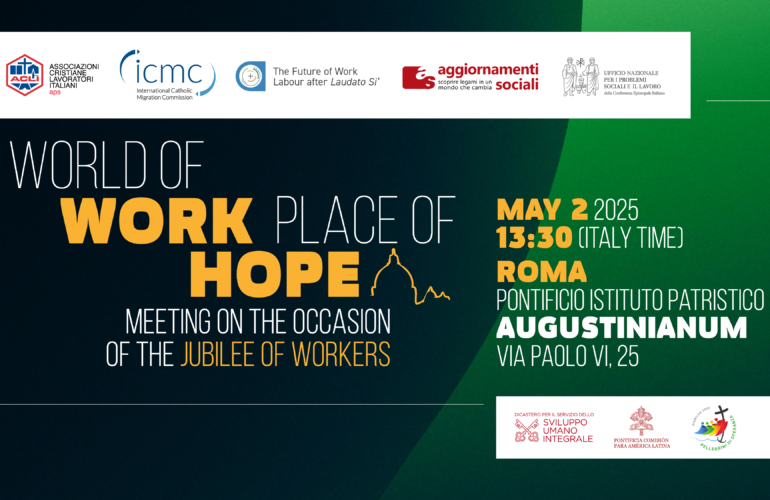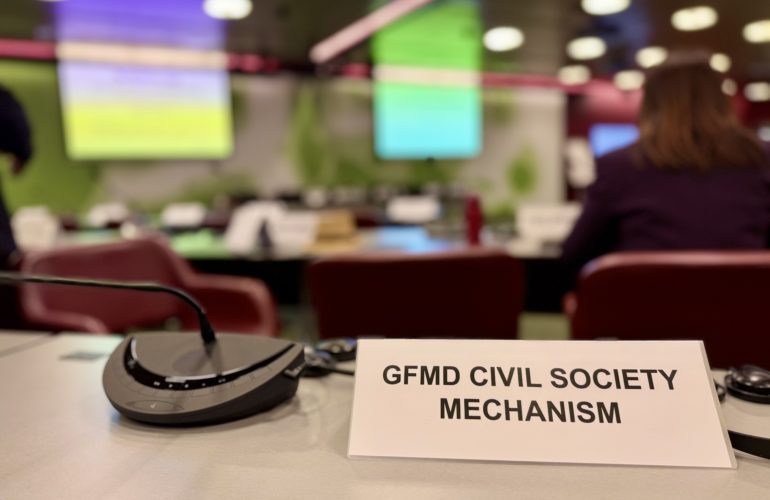ICMC Joins International Discussions To Fight Wage Theft

ICMC President Ms. Christine Nathan participates in regional expert discussions on action to fight wage theft and uphold the rights of migrant workers in the Asia-Pacific region.
By Rachel Westerby **
On 2 October 2022, ICMC President Ms. Christine Nathan addressed delegates of the Conference on Access to Justice for Migrant Workers held in Kuala Lumpur, Malaysia, on 2-4 October. Co-organized by the Migrant Forum in Asia (MFA), the Malaysian Bar Council, and the Malaysia NGO Our Journey, with support from the International Organization for Migration’s program on Corporate Responsibility in Eliminating Slavery and Trafficking, the three-day meeting focused on wage theft and access to justice for migrant workers in the Asia-Pacific region.
The meeting took place in the context of the #SayYestoJustice campaign, launched by MFA and a coalition of partners* in 2020, in response to the enormous struggles and rights violations faced by migrant workers in the wake of the COVID-19 pandemic. The campaign has featured in many events and discussions organized by the ICMC-led Civil Society Action Committee, including in the ongoing People’s Migration Challenge series, and successfully brought the issue of wage theft to the attention of governments, the private sector, and mainstream media.
Ms. Nathan’s intervention drew on her long history of working in India and around the world to improve the rights and uphold the dignity of migrant workers, including in relation to fighting wage theft. As an active trade unionist, she worked with the migrant and unskilled workers who make up most of the workforce in India’s construction and forestry sectors. She then worked at the International Labour Organization (ILO), where she directed ILO activities across the Asia-Pacific region. Her work continues as a member of the Migrant and Labour Commission of the Archdiocese of Mumbai and as ICMC President.
At the Kuala Lumpur meeting, many of the issues presented by Ms. Nathan were echoed in her 12 October address to the 200 delegates of the Federation of Asian Bishops Conference (FABC), which took place on 12-30 October 2022 in Bangkok, Thailand. Her contribution ensured that upholding the rights and dignity of migrant workers formed part of the conference’s reflections on emerging realities and challenges for the Church in Asia.
Wage theft, migrant workers and COVID-19
Ms. Nathan introduced the issue of wage theft, with particular reference to the Asia-Pacific region. “Wage theft is a migration governance issue affecting both sending and receiving countries,” she explained. “It is facilitated by an absence of appropriate laws and systems to provide rights for migrant workers and ensure those rights are protected.”
Ms. Nathan set out a range of factors that make migrant workers vulnerable to wage theft:
- lack of legal parity in terms of access to rights for migrant workers, who in many countries are not covered by labor laws that apply to citizens;
- high rates of unemployment creating a supply of workers willing to accept poorer working conditions;
- lack of mechanisms for migrant workers to obtain legal redress and access to justice;
- the high proportion of migrant workers who are undocumented and lack access to rights, sufficient legal protections and knowledge of legal procedures and processes that might enable them to challenge rights violations;
- unfair and unlawful recruitment practices such as charging fees, deducting expenses from salaries, and misrepresenting salary offers so migrant workers arriving in destination countries earn far less than promised;
- an increasing number of women migrating for work and limited knowledge of their needs and vulnerabilities, at all stages of the migration process;
- the rapid growth of the ‘gig economy’, in which migrant workers are employed as ‘independent contractors’ without access to the rights and protections available to those working in more formalized positions.
The COVID-19 pandemic severely impacted migrant workers around the world, including by increasing their vulnerability to wage theft. “Many migrant workers lost their jobs, but there were no organized repatriation programs to assist them to return home,” Ms. Nathan stated. “Employers terminated their contracts and told them to go, very often without paying the wages and benefits that workers were owed. Some were forced to take unpaid leave by their employers, and so suffered wage theft throughout the periods in which they were unpaid.”
Fighting wage theft: looking to the future
Ms. Nathan proposed a number of solutions to the issue of wage theft and the situation of migrant workers more broadly, setting out key priorities and actions for all stakeholders in the coming period.
She emphasized that organizing and collective bargaining are basic fundamental rights of all workers, including migrant workers, and are crucial tools in the fight against exploitation. “We must look to collectivism, because potential disruptions to business and profit are the only way to incentivize employers to act,” she explained. “If workers are able to organize and carry out collective bargaining for their rights, wages and working conditions, then there would likely be no wage theft.”
Recalling her experience at the ILO, the only U.N. agency to directly engage employers alongside governments and workers, Ms. Nathan urged the audience to ensure employers were present at future discussions on wage theft. “They are who the migrants are working for, and we must try to build a consensus,” she stated. “But we must also recognize that employers are very rich and in many parts of the world very powerful, and for civil society to talk to employers on an equal footing we need resources.”

Ms. Nathan highlighted how migrant workers from the Asia-Pacific region often send large portions of their earnings to their countries of origin as remittances, making a significant contribution to their home economies. “Migration has become a booming industry in which sending countries invest in schemes to recruit, skill and send workers, and are happy to receive remittances,” she explained. “But they pay far less attention investing in the rights and wellbeing of the workers that are boosting their economies, both after they leave and when they return, or in developing domestic job creation policies.”
She also called on receiving countries to enforce legal protections for migrant workers, including by penalizing employers engaging in wage theft, and on all state actors to build on the recent positive progress on bilateral and multilateral agreements and cooperation to safeguard the rights of migrant workers.
The role of the Church
Emphasizing the importance of strong and unified cooperation between all stakeholders working to uphold the rights of migrant workers, Ms. Nathan reflected on the specific role of the Church in fighting wage theft. She pointed to the strong leadership of the Vatican via its cooperation with trade unions and Christian employers, and the need to build awareness within the Church as to the contemporary realities of migration, including wage theft.
“We can also do many practical things: the Church has so much space that could be used to establish Migrant Worker Resource Centers or provide training and skills development for migrant workers,” she said. “We can also make a valuable contribution to the education of the children of migrant workers, whose parents often cannot afford school fees.”
***
* #SayYestoJustice is a joint campaign launched by Migrant Forum in Asia, the Cross-Regional Centre for Refugees & Migrants, Lawyers Beyond Borders, the South Asian Regional Trade Union Council (Sartuc), Solidarity Center and the ASEAN Services Employees Trade Union Council.
** Rachel Westerby is an independent writer and researcher on migration, refugees and integration



